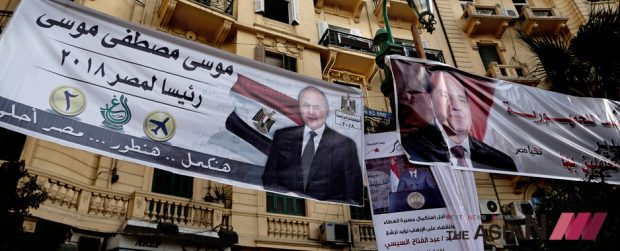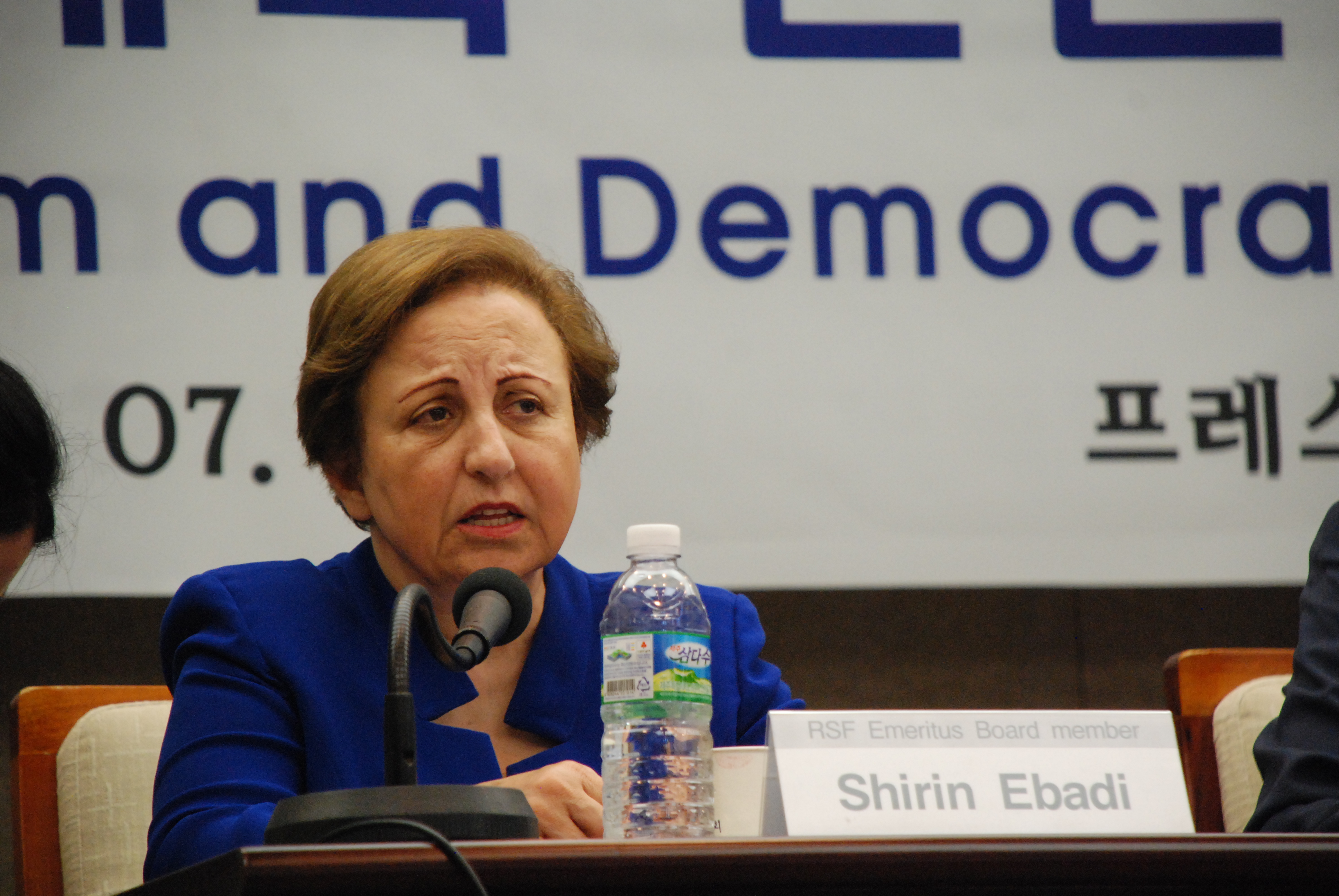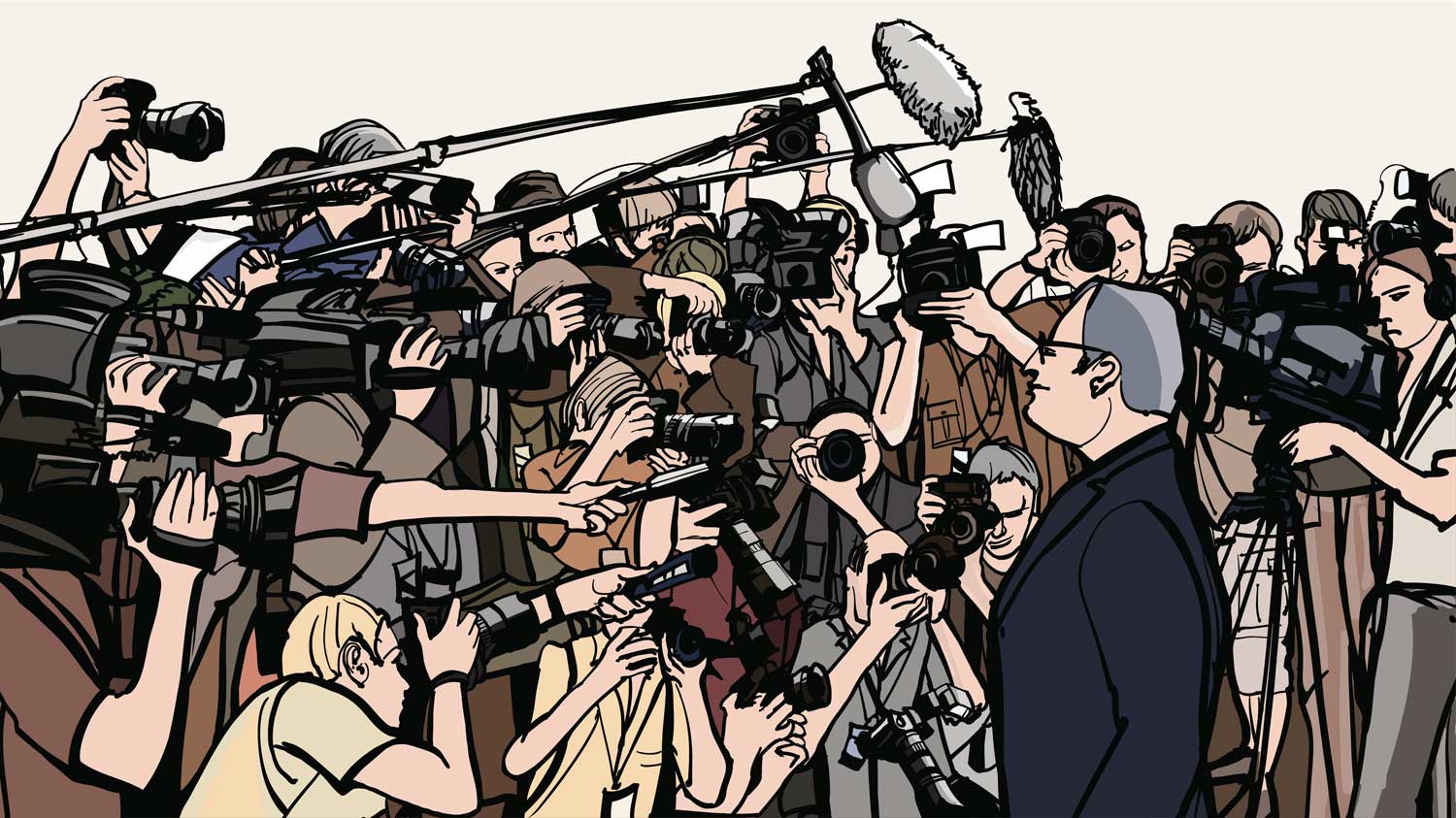
Spies & Journalists, the Thin Line Tightened between Media and Security
“23-year-old Zubeida is one of 1,500 Egyptians who vanished from the streets in what human rights campaigners call enforced disappearances. Zubeida’s mother spoke to Orla Guerin (BBC correspondent in Cairo) about the torture her daughter was subjected to at the hands of the police”.
This was what BBC Newsnight tweeted mid-February, to reveal what they describe—between the lines—as the dark side of the dictatorship; Egypt has been witnessing such scenes and the people continue to suffer. It took the State two days to defend itself by slamming BBC’s media acquisition: the young Egyptian woman alleged to have “forcibly disappeared”—by Orla Guerin’s extensive BBC investigative feature “The Shadow Over Egypt” telecasted after the tweet—appeared in an interview with a prominent TV host, refuting claims that she had been kidnapped by authorities and tortured.
TV host Amr Adib for the ON satellite channel met with 25-year-old Zubeida Ibrahim, her husband Sayed Abdel Azim sitting beside her, to deny “The Shadow Over Egypt” and other similar articles in person. Meanwhile, the State Information Service (SIS) issued a statement rebuking reporter Orla Guerin for committing “journalistic misdemeanors”.
Guerin’s feature, broadcast on the 23rd of February, was seen to have been made from the testimonials of several individuals who claimed to have been tortured by Egyptian authorities for being involved in pro-Muslim Brotherhood (MB) protests—which they say they had no part in. The SIS continued to demand that the BBC “issue an immediate apology” over the report for the “gross professional error regarding citizen Zubeida, to the extent of absolute falsification and fabrication”.
On Tuesday, the 27th of February, the head of the SIS, Diaa Rashwan, called on Egyptian officials to boycott the BBC and abstain from media interviews with its journalists and producers until the media organization officially apologized and published the SIS’s response to its report. “The SIS asserts that such a boycott does not involve or undercut the BBC’s right to obtain information and those statements necessary to carry out its duties,” the statement read. Rashwan ordered the press center for foreign journalists to take the necessary measures to implement their statement regarding BBC’s Cairo bureau and to work within the rules governing the work of foreign correspondents in Egypt. On her mother’s statements, Zubeida refused to comment. Her husband,
a football coach, said he had been a sympathizer and a member of the MB’s Freedom and Justice Party, highlighting that Zubeida’s mother was once a guest on a Brotherhood channel where she said that her daughter had been kidnapped and tortured. Zubeida added that she and her mother also participated in the Islamists’ Nahda sit-in camp in 2014, but for “only ten days at the beginning”. Later on, one of Turkey’s TV channels called Mekameleen TV (one of many anti-Egyptian regime stations that oppose the current President) broadcast that the interview of Amr Adib on the One satellite channel was a fabrication. Mekameleen (a word which means “we are continuing our mission”; a common opposition slogan outside of Egypt) reported that the video interview was filmed in one of the official security locations and that Zubeida was being held captive by police and security forces who also forced her to deny her disappearance. And so it goes on, one story after the other, while the audience is left to determine which story could be true. Many journalists start out by seeking the truth, but soon enough they tend to fall into the hands of politicians and other groups, throughout which such reporters lose the sharp and honest judgment necessary in the court of ethical journalism.
Long-standing Financial Times journalist John Lloyd, who is also a Senior Research. Fellow at the Reuters Institute, has said, “It is this impossible relationship between spies and journalists, because the nature of the secret services is secret. The secret services are a problem to journalists and will remain so. In democratic countries, the openness ends more or less at the door—if you know where the door is—of a secret service.” If this is the situation in democratic countries, what would conditions look like in Middle-eastern countries; where elections are a décor one-act play?
On February 28, Egypt’s top prosecutor ordered authorities to monitor media for any “fake news” reports. After the prosecutor general’s announcement, Egyptian authorities then proceeded to arrest Ahmed Tarek Ibrahim Ziada and ordered the detention of Selma Alaa Eddin over their roles in the making of a critical documentary film, “Minus 1095 Days”, which continues to be in production.
These two film producers are activists for the anti-government April 6 Youth Movement and had been making the film as an attempt to refute claims in a state-produced film called “1095 Days” that highlights President Abdel Fattah el- Sisi’s accomplishments in office. Ziada and Eddin have both been charged with insulting the Egyptian state, and according to research by the Committee to Protect Journalists (CPJ), at least 20 journalists were behind bars in Egypt as of December 1, 2017, and more than half of those detained were charged with “spreading false news”.
Egypt’s CPJ is concerned over the detention and subsequent disappearance of Egyptian journalists on a regular basis. Ahead of presidential elections, the government has been keen on censoring any critical reporting. “The Egyptian authorities’ practices of arresting, hiding, and intimidating journalists undercuts the already slim chances of having free elections,” CPJ’s Middle East and North Africa Program Coordinator Sheriff Mansour said from Washington D.C.Evidently, when truth is not easy to get, fishing in a muddy pond of lies is the more effective way.








